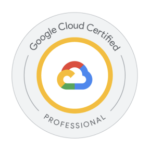It’s easy to get caught up in the excitement of launching a campaign but once the ads are live, the content is shared, and the emails are sent, how do you measure success? Marketers often face this challenge: figuring out how to evaluate if the effort, time, and money spent on a campaign are paying off. With the vast range of tools and metrics available, measuring the effectiveness of a digital marketing campaign can seem overwhelming. However, when done correctly, it becomes clear what works, what doesn’t, and where you need to pivot to achieve better results.
Understanding how to measure success is the key to improving digital strategies and achieving business goals. It’s not just about hitting your target KPIs (Key Performance Indicators) but also understanding what those numbers actually mean in terms of customer behavior, brand awareness, and bottom-line growth. In this data-driven world, the ability to assess your campaign performance can significantly impact your marketing decisions moving forward.
How to Measure the Success of a Digital Marketing Campaign?
- Define Your Campaign Goals and KPIs
First and foremost, it’s essential to establish clear goals and Key Performance Indicators (KPIs). This step is crucial because it serves as a roadmap for how success will be defined and measured. Without defined goals, it’s easy to get lost in a sea of data without any context.
- Brand Awareness: If your goal is to increase awareness, you should look at metrics like reach, impressions, and website traffic.
- Lead Generation: For lead generation campaigns, conversions and the cost per lead (CPL) are important indicators.
- Sales or Revenue: For e-commerce businesses, measuring direct sales or revenue generated from the campaign is key.
Aligning your campaign’s goals with measurable metrics ensures you’re collecting data that directly correlates to your business objectives.
- Monitor Traffic and Engagement Metrics
One of the first and most obvious ways to measure the success of a digital marketing campaign is by tracking website traffic. In addition to overall visits, pay attention to the quality of that traffic.
- Organic Traffic: How much of the traffic is coming from organic search? This indicates the effectiveness of your SEO efforts.
- Referral Traffic: Track how much of your traffic is being referred from social media, blogs, or other websites, highlighting the impact of your outreach efforts.
- Engagement: Metrics like bounce rate, average session duration, and pages per session show how engaging your content is for visitors. High engagement often correlates with higher chances of conversion.
For a digital marketing agency in Lahore, leveraging the right analytics tools will help track these metrics in real time and adjust strategies as necessary to keep the campaign on track.
- Conversion Rate Optimization (CRO)
The conversion rate is one of the most important indicators of a successful campaign. It measures how well your campaign is turning visitors into customers or leads. A high conversion rate suggests that your campaign is effectively driving actions that contribute to your business goals.
- Landing Page Performance: Assess how well your landing pages are performing in terms of generating conversions. A low conversion rate here might indicate the need for optimization.
- Call-to-Action (CTA): A well-placed, compelling CTA can significantly increase your conversion rate. Monitor how users interact with these CTAs.
- Return on Investment (ROI)
ROI is a crucial metric for any business looking to measure the effectiveness of its digital marketing efforts. It answers the question: “Are we getting our money’s worth?”
To calculate ROI:
ROI = (Revenue from Campaign − Campaign Cost / Campaign Cost) × 100
This metric helps a digital campaign specialists Lahore evaluate if the financial resources put into the campaign are being effectively utilized. A positive ROI shows that the campaign is profitable, while a negative ROI suggests that adjustments are needed.
- Customer Acquisition Cost (CAC)
Customer Acquisition Cost (CAC) is another essential metric for understanding the effectiveness of your digital marketing campaign. It represents the cost incurred to acquire a new customer through your marketing efforts. To calculate CAC:
CAC = Total Marketing Expenses / Number of Customers AcquiredTotal
A lower CAC means that you are efficiently converting leads into paying customers at a lower cost. A high CAC can indicate inefficiencies in your marketing strategy or indicate that you need to optimize certain aspects of the funnel, such as targeting or messaging.
- Social Media Metrics
Social media platforms are powerful tools for engagement, awareness, and customer relationship building. Depending on your campaign, measuring social media metrics can provide deep insights into how well your content is resonating with your audience.
- Likes, Shares, and Comments: These are indicators of engagement and audience interaction with your content.
- Follower Growth: A steady increase in followers signals growing brand interest and awareness.
- Sentiment Analysis: Understanding how people feel about your brand after a campaign can provide valuable insights into your brand’s reputation.
Successful campaigns often see an increase in social media interactions and a stronger online presence, which can lead to improved customer loyalty and advocacy.
- Email Marketing Performance
Email marketing continues to be one of the most effective digital marketing channels. To evaluate the success of email marketing campaigns, track these metrics:
- Open Rate: The percentage of recipients who open your email.
- Click-Through Rate (CTR): The percentage of recipients who click on links within your email.
- Conversion Rate: How many recipients took the desired action, such as making a purchase or filling out a form.
These metrics will help you understand the effectiveness of your email campaigns in engaging your audience and driving conversions.
- Customer Feedback and Surveys
Sometimes, the best way to measure the success of a campaign is by simply asking the customers. Feedback from your audience can provide qualitative insights that raw data cannot. This can be done through:
- Surveys: Sending out surveys to understand customer satisfaction and campaign impact.
- Direct Feedback: Engaging customers through social media, live chats, or emails to gather insights into their experience.
Customer feedback is invaluable for understanding not just the “what” but the “why” behind your campaign’s performance.
Bottom Line
Measuring the success of a digital marketing campaign requires more than just tracking a few numbers. It involves understanding what metrics matter most for your business goals, continually refining strategies, and ensuring that you’re reaching the right audience with the right message. From traffic and engagement to ROI and customer feedback, each metric plays a crucial role in determining the effectiveness of your campaign. Working with a digital marketing agency Lahore can provide the expertise and tools you need to succeed.



